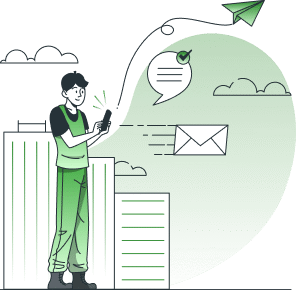Unlock Your Creative Potential through Innovative Thinking

Unleash the power of your imagination and ignite innovation in your thinking. Discover strategies that can help transform your ideas into reality and accelerate your creative journey.

Join 2000+ tech leaders
A digest from our CEO on technology, talent and hard truth. Get it straight to your inbox every two weeks.
No SPAM. Unsubscribe anytime.
Are you tired of feeling stuck in the same old thought patterns? Do you long for more creative inspiration in your life?
Look no further than unlocking your creative potential through innovative thinking. In this post, we will explore the science behind creativity, the benefits of cultivating a creative mindset, and practical steps towards unleashing your own creative potential.
“Creativity is thinking up new things. Innovation is doing new things.“ – Theodore Levitt
Understanding Creative Potential
When it comes to creativity, there is no one-size-fits-all approach. Each individual has their own unique set of skills, experiences, and perspectives that can influence their creative potential. In this article, we will explore what creative potential is, what factors can influence it, and how to develop and harness your own creative abilities.
What is Creative Potential?
Creative potential is the ability to generate new and innovative ideas, approaches, and solutions to problems. It involves thinking outside the box and challenging conventional ideas and beliefs. Creative potential can be applied to any field, from art and music to science and technology.
Some people are naturally more inclined towards creative thought, but everyone has the capacity to develop their own creative abilities. By exploring new perspectives and possibilities, we can tap into our own creative potential and generate fresh and exciting ideas.
Factors Influencing Creative Potential
There are various factors that can influence a person’s creative potential. Genetics, environmental factors, and cognitive processes all play a role in shaping an individual’s creative abilities.
For example, studies show that people who grew up in stimulating environments with exposure to diverse perspectives are more likely to develop strong creative skills. Additionally, certain cognitive processes, such as the ability to think abstractly and make connections between seemingly unrelated concepts, can also contribute to creative potential.
It’s important to note that while genetics and environmental factors can provide a foundation for creative potential, they are not the sole determining factors. With practice and dedication, anyone can develop and enhance their own creative abilities.
Developing Your Creative Potential
If you’re looking to develop your own creative potential, there are several strategies you can try:
- Engage in creative activities, such as writing, drawing, or playing music, to exercise your creative muscles.
- Expose yourself to new ideas and perspectives by reading, traveling, or attending events in your community.
- Collaborate with others to generate new ideas and approaches.
- Take risks and embrace failure as a learning opportunity.
- Practice mindfulness and meditation to quiet your mind and open yourself up to new possibilities.
By incorporating these strategies into your daily life, you can begin to unlock your own creative potential and generate fresh and innovative ideas.
The Science Behind Creativity
Creativity is a fascinating and complex phenomenon that has intrigued scientists, psychologists, and artists for centuries. It is the ability to generate new and original ideas, concepts, and solutions that are both useful and valuable.
The Neuroscience of Creativity
Neuroscience studies have shown that creativity in the brain arises from a combination of different cognitive processes such as attention, memory, perception, and emotion. When these processes are activated and connected in new ways, it leads to novel and inventive ideas.

For example, when you are working on a creative task, your brain’s attention network is activated, allowing you to focus on the task at hand. Your working memory is also engaged, allowing you to hold multiple pieces of information in your mind and manipulate them to generate new ideas. Your perceptual system is also activated, allowing you to see and interpret the world in new and different ways. Finally, your emotional system is engaged, allowing you to experience positive emotions such as joy, excitement, and curiosity, which can enhance your creativity.
Neuroscience studies have also shown that creativity is not limited to a specific area of the brain. Instead, it involves a network of brain regions that work together to generate new ideas. These regions include the prefrontal cortex, which is responsible for executive functions such as planning, decision-making, and working memory; the temporal lobe, which is responsible for memory and language processing; and the parietal lobe, which is responsible for spatial processing and attention.
The Role of Genetics and Environment
While genes play a role in creative potential, research suggests that environmental factors have a larger impact on creative thinking. Growing up in an environment that encourages and rewards creative thinking can enhance a person’s overall creative ability even if they may not have a specific genetic predisposition towards creativity.
For example, studies have shown that children who are exposed to art, music, and literature at an early age are more likely to develop creative thinking skills. Similarly, children who are encouraged to explore and experiment with different ideas and solutions are more likely to develop a creative mindset.
Moreover, research has shown that exposure to diverse cultures and experiences can also enhance creativity. When people are exposed to different perspectives, ideas, and ways of thinking, it can broaden their minds and inspire them to think creatively.
In conclusion, creativity is a multifaceted phenomenon that involves a complex interplay between different cognitive processes, brain regions, and environmental factors. By understanding the science behind creativity, we can learn to cultivate and enhance our own creative thinking skills.
Benefits of Innovative Thinking
In today’s fast-paced world, innovation has become a key driver of success. The ability to think creatively and come up with new and unique ideas is highly valued in both personal and professional settings. Here are some of the many benefits of innovative thinking:
Improved Problem-Solving Skills
One of the most significant benefits of innovative thinking is improved problem-solving skills. When you approach problems with a creative and open mindset, you are more likely to find unique solutions that others may not have considered. This can be particularly useful in the workplace, where finding effective solutions to complex problems is highly valued.
For example, imagine you are tasked with finding a way to reduce costs in your department. Instead of simply cutting expenses, you might use creative thinking to come up with new revenue streams or innovative ways to streamline processes. This type of thinking can lead to more effective and sustainable solutions.
Enhanced Adaptability
Innovative thinking also helps you to be adaptable and resourceful in the face of change. When you are open to exploring new perspectives and approaching challenges with a fresh mindset, you become more resilient and able to navigate unfamiliar situations with ease.
For example, imagine you are starting a new job in a completely different industry. Instead of feeling overwhelmed and intimidated, you might use your creative thinking skills to identify transferable skills and find new ways to apply them in your new role. This type of adaptability can help you thrive in new and challenging environments.
Increased Personal Growth
Creative pursuits can help you to explore new interests and engage in activities that bring joy and fulfillment. Developing your own creative potential is a form of personal growth that can lead to increased self-awareness and a deeper sense of purpose.
For example, imagine you have always been interested in photography but have never pursued it seriously. By taking a photography class or joining a local photography group, you might discover a new passion and develop a new skillset. This type of personal growth can lead to increased confidence and a greater sense of fulfillment in life.
Boosted Career Opportunities
Employers value innovative thinkers who can bring fresh perspectives and novel solutions to the workplace. Developing your own creative potential can open doors to new career opportunities and help you stand out in job interviews and performance evaluations.
For example, imagine you are applying for a job in a highly competitive field. By showcasing your creative thinking skills and providing examples of how you have used them in the past, you might set yourself apart from other candidates and land the job. This type of career advancement can lead to increased job satisfaction and financial stability.
In conclusion, innovative thinking is a valuable skill that can benefit you in countless ways. By cultivating your own creativity and approaching challenges with an open mind, you can improve your problem-solving skills, enhance your adaptability, experience personal growth, and boost your career opportunities.
Cultivating Your Creative Mindset
Are you looking to cultivate a more creative mindset? Whether you’re an artist, writer, or just looking to expand your problem-solving skills, there are a few key strategies that can help you unlock your innate creativity.
Embracing Curiosity and Openness
One of the most important aspects of cultivating a creative mindset is embracing curiosity and openness to new experiences and perspectives. When we’re curious, we’re more likely to seek out new experiences, read books on diverse topics, take up a new hobby, and engage in projects outside of our comfort zone.
Opening ourselves up to new experiences and perspectives can help us see the world in a new light, which in turn can inspire new ideas and ways of thinking. So the next time you’re presented with a new opportunity, try saying yes and see where it takes you!
Challenging Assumptions and Beliefs
Another way to develop your creative thinking skills is to challenge your own assumptions and beliefs. We all have certain thought patterns and beliefs that we’ve developed over time, but sometimes these beliefs can limit our ability to see problems in a new light.
Learning to question our own assumptions and explore alternative viewpoints and possibilities can help us break away from conventional thinking and arrive at innovative solutions. So the next time you’re faced with a problem, try to approach it from a new angle and see what new ideas come to mind.
Encouraging Divergent Thinking
Finally, it’s important to encourage divergent thinking by regularly brainstorming new ideas and solutions to problems. When we allow ourselves to engage in free association and let our ideas flow without self-judgment, we’re more likely to arrive at unique and innovative solutions.
So the next time you’re faced with a problem, try brainstorming a list of potential solutions, no matter how outlandish they may seem. You never know what creative ideas might emerge!
—
Unlocking your creative potential will not only improve your problem-solving skills and boost your career opportunities but also enrich your personal life. So don’t be afraid to embrace your innate creativity and watch as it transforms your perspective and expands your horizons.
Tags: brainstorming, creative, creativity, ideas, imagination.



This is a great article on unlocking one’s creativity. I particularly liked the different strategies that were provided to help people embrace their creativity. I think it is important for people to make time to practice their creativity and it goes hand-in-hand with mindfulness.